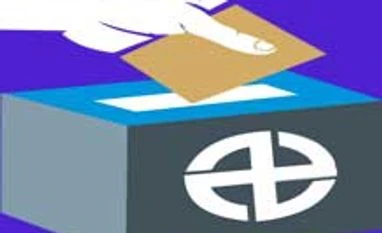The BPF, which has been in power in Bodoland since the first election took place in 2005, had to face a tough fight this time. People's Committee for Democratic Rights (PCDR), an umbrella organisation, too, representing the Bodo community, posed a tough electoral challenge to BPF this time. Seven PCDR-backed candidates won the election.
The All India United Democratic Front (AIUDF), a pro-Muslim party led by clergy Maulana Badaruddin Ajmal, which contested the BTC polls for the first time, did remarkably well by winning four seats. In contrast, the Congress party and Assam's regional party - Asom Gana Parishad (AGP), drew a blank. The Bharatiya Janata Party (BJP), which also contested BTC polls first time, could just manage to win one seat.
More From This Section
BPF is hopeful to form the government this time too with support from independent MLAs.
Bodoland had been in news in recent years for ethnic conflicts between Bodos and suspected Bangladeshi immigrants. The tea-tribe community and santhals too have been the targets of Bodo-ire in recent years.
The present Bodoland, better known as Bodoland Territorial Autonomous Districts (BTAD), which comprises of four Bodo-inhabited districts of Kokrajhar, Chirang, Udalguri and Baksa, were formed after signing of the historic Bodo Accord in 2003 between Centre and Bodo-militant organisation called Bodo Liberation Tigers (BLT). Though that paved the way for BLT members and cadres to join the mainstream and tread the path of peace (they formed the BPF party), another armed organisation, National Democratic Front of Bodoland (NDFB), continued with its armed struggle. The NDFB later split into three factions, with two factions (NDFB-Progressive and NDFB-Ranjan Daimary) presently engaged in talks with the Centre. The third faction, against whom the army had launched an operation in January after it gunned down around 65 people belonging to tea-tribe community in December in remote areas, is known as NDFB-Songbijit.
)